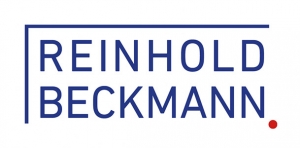The new “Digital Services Act” of the EU. What is in store for us there?
On December 9, 2020, the EU Commission intends to announce a series of new planned competition and antitrust regulations to improve the control of technology groups, particularly the major Internet platforms.
In a report published on November 19, 2020, the EU Court of Auditors also urges the improvement of corresponding EU regulations. In particular, the report criticizes the fact that two antitrust proceedings against Internet platforms already exist under current law, but that enforcement here leaves much to be desired.
Although the EU Commission has opened antitrust proceedings against Google, these have been still pending before the European Court of Justice for more than three years without a decision.
Already a few weeks ago, the contents of the planned new EU regulations – the so-called Digital Services Act – were leaked, so I would like to give you a short list of the intended regulations in the following
1. Exclusive use of data
Large online platforms could be banned under the EU Digital Services Act from using collected User Data if it is not made available to smaller platforms. The activities of so-called “gatekeeper” platforms such as Google, Amazon and Facebook will be discussed in particular. These large corporations have a disproportionately high degree of economic power and control over the online world and can therefore participate in deciding “at the gate” who may enter the market.
According to the new regulation, gatekeepers are only allowed to use data
- which is produced on the platform itself
- or which are generated and collected on other services of the donors
for their own commercial purposes if it is also made available to other commercial users.
2. Rankings
Furthermore, online search engines are to be prohibited from displaying their own services preferentially and in an exposed position. This regulation represents a considerable tightening of the previous EU regulation from July 2019. In this regulation, search engines were only obliged to make it clear and transparent if they give preference to their own products and services.
3. Freedom of choice and Pre-installation
Equally, e-commerce giants will be prohibited in the future from restricting the ability of business users to offer the same goods and services to consumers under different conditions through other online intermediary services. It will also be prohibited for large companies to pre-install only their own apps on hardware systems. It must also be possible for consumers to uninstall applications that have already been pre-installed by the manufacturer.
4. Einführung einer sogenannten „Grauen Liste“
Furthermore, the EU Commission intends to introduce a so-called “grey list” of activities that the executive considers unfair and which may therefore require increased supervision by a competent authority in the future. According to this list, the platform giants are not allowed to prevent third parties from accessing essential information about customers and are instructed not to collect personal data beyond what is necessary to provide their services.
It ultimately remains to be seen in what concrete form the EU Commission will now present these regulations in December 2020. However, it can certainly be expected that intensive lobbying by the major Internet groups, as has already happened several times in the past, will result in some changes and public discussion before the final adoption. It remains – as so often in life – thus further exciting.
This post is also available in: German


